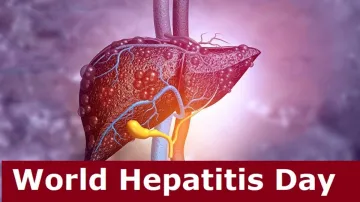World Hepatitis Day is observed on July 28 every year to raise awareness about hepatitis and its impact on global health. Hepatitis is an inflammation of the liver caused by viral infections, toxic substances, or autoimmune diseases. Understanding the causes, symptoms, treatment, and preventive measures is crucial in combating this disease.
Causes of Hepatitis
Hepatitis can be caused by several factors, including:
- Viral Infections: The most common cause is viral infections, specifically hepatitis viruses A, B, C, D, and E.
- Alcohol Consumption: Excessive alcohol intake can lead to alcoholic hepatitis.
- Toxins: Exposure to certain chemicals and drugs can cause toxic hepatitis.
- Autoimmune Diseases: The immune system attacking liver cells can result in autoimmune hepatitis.
- Fatty Liver Disease: Non-alcoholic fatty liver disease can progress to non-alcoholic steatohepatitis (NASH), causing liver inflammation.
Symptoms of Hepatitis
Hepatitis symptoms can vary depending on the type and severity of the infection. Common symptoms include:
- Fatigue
- Nausea and vomiting
- Abdominal pain, especially in the upper right quadrant
- Loss of appetite
- Jaundice (yellowing of the skin and eyes)
- Dark urine
- Pale stool
- Joint pain
Treatment of Hepatitis
The treatment for hepatitis depends on the type and severity of the infection:
- Hepatitis A: Usually, no specific treatment is needed as it often resolves on its own. Rest, hydration, and a healthy diet are recommended.
- Hepatitis B and C: Antiviral medications are used to manage these chronic infections. Treatment aims to reduce the viral load and prevent liver damage.
- Autoimmune Hepatitis: Immunosuppressive drugs like corticosteroids are used to reduce inflammation.
- Toxic Hepatitis: Discontinuing the use of the toxic substance and managing symptoms are crucial. In severe cases, liver transplantation may be necessary.
Preventive Measures of Hepatitis
Preventing hepatitis involves several strategies:
- Vaccination: Vaccines are available for hepatitis A and B. These vaccines are effective in preventing infection.
- Safe Practices: Avoid sharing needles, razors, or toothbrushes. Practice safe sex by using condoms to reduce the risk of hepatitis B and C.
- Hygiene: Wash hands thoroughly, especially before eating and after using the restroom, to prevent hepatitis A and E.
- Safe Food and Water: Ensure food is cooked properly and drink clean, treated water to prevent hepatitis A and E.
- Limit Alcohol Consumption: Reduce alcohol intake to prevent alcoholic hepatitis and related liver damage.
- Regular Screening: People at high risk, such as those with a history of blood transfusions, should get regular screenings for hepatitis B and C.
World Hepatitis Day 2024 is a reminder of the importance of awareness and action in the fight against hepatitis. By understanding its causes, recognizing symptoms, seeking appropriate treatment, and adopting preventive measures, we can reduce the burden of hepatitis and protect liver health. Spread the word, get vaccinated, and practice safe habits to stop liver inflammation and promote a healthier world.
ALSO READ: What is Sarcoma? Know symptoms, diagnosis and treatment of this rare tumour
